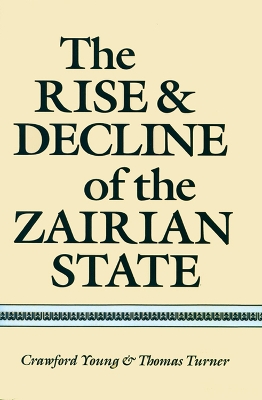Zaire, apparently strong and stable under President Mobutu in the early 1970s, was bankrupt and discredited by the end of that decade, beset by hyperinflation and mass corruption, the populace forced into abject poverty. Why and how, in a new African state strategically located in Central Africa and rich in mineral resources, did this happen? How did the Zairian state become a "parasitic predator" upon its own people?
In this broadly researched study, Crawford Young and Thomas Edwin Turner examine the political history of Mobutu's Zaire, looking at critical structures and patterns of societal flux, inequality, and cleavage, in particular the urban-rural nexus, the problematic of class formation, and the fluid patterns of cultural pluralism.
The authors begin with a succinct history of the origins of the Zairian state (formerly the Belgian Congo), examining in particular the problems, inherited from its colonial heritage, that led to the first few tumultuous years of independence. They then turn to the critical aspects of transformation of civil society, including the relationships between urban and rural factions, class formation, and the rapidly shifting nature of ethnicity as a sociopolitical factor. They offer a comprehensive overview of the major political trends, tracing the regime through its successive phases of power seizure, consolidation, growing personalisation, crisis, and decline. Finally, Young and Turner assess the state's actual performance in several policy areas: economy, international relations, and its package of "Zairianization" and "radicalization" measures.
Young and Turner's thorough research, informed analysis, and straightforward style will do much to illuminate the political workings of a major African state long considered an enigma by most Western observers.
- ISBN13 9780299101145
- Publish Date 3 April 2013
- Publish Status Active
- Publish Country US
- Imprint University of Wisconsin Press
- Format Paperback
- Pages 522
- Language English
